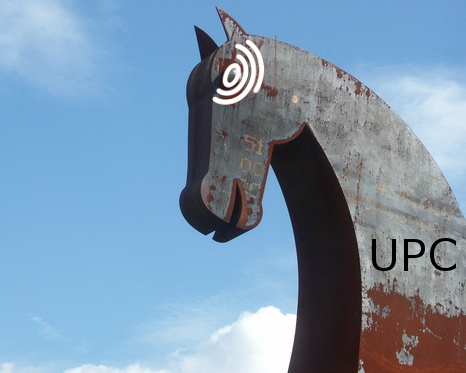

THE EPO's management, seemingly working for large corporations (not even European)*, keeps trying to undemocratically push the SMEs-hostile UPC, by extension spreading software patents in the European continent/commonwealth/nations and beyond them (the EPO is broader than that). Examiners at the EPO oughtn't tolerate this as it jeopardises the quality of patents and damages the credibility of the EPO, along with the perceived value of European patents (EPs). We have already presented many articles, citing experts in the field, saying that UPC would bring software patents to Europe.
"Examiners at the EPO oughtn't tolerate this as it jeopardises the quality of patents and damages the credibility of the EPO, along with the perceived value of European patents (EPs)."One subject we have been writing about for over 9 years is RAND (sometimes known as FRAND for an extra euphemism, "fair"). This new article from the Indian press (where the debate about software patents has been hot recently) speaks about “FRAND” as follows: "The past week had an article on standard essential patents (“SEPs”) by Divya Rajput, and how their licensing on Fair, Reasonable, and Non-Discriminatory (“FRAND”) terms helps several industries to operate and serve customers. Ms. Rajput makes several interesting points, but these points are not grounded in reality and reflect logical inconsistencies.
"We have already presented many articles, citing experts in the field, saying that UPC would bring software patents to Europe.""There was a time when indentured servitude was considered to be a good thing. Thank God we are not living in those days. Today, it is a criminal offense. Same is true for licensing of SEPs. What was an excellent business practice in the 90s, is not a viable business strategy today. Out of the original five (Motorola, Ericsson, Nokia, Alcatel-Lucent, and Nortel), none remains in providing and manufacturing mobile phones. Rather, all are involved in patent licensing in some form or the other. The cross-licensing rates in those days cannot be used as a bench mark today."
Well, based on this new report from MIP, UPC remains a Trojan horse for FRAND and thus software patents in Europe (we wrote many articles about this around 2008). To quote MIP (behind paywall): "Our latest UPC scenario looks at a case involving a standard-essential patent. Michael Carter, Nick Cunningham and David Barron consider a defendant’s options in the new court system" (see this recent example).
"...it's imperative to rebut the claims which come primarily from patent lawyers, the EPO, and gullible journalists who just print whatever they're told by those former two groups."Readers should be made aware that in anti-FOSS lobbying circles (e.g. Business Software Alliance or Association for Competitive Technology) FRAND became a byword for software patents or incompatibility with FOSS. They try to phase FOSS out of existence, or simply make it arbitrarily taxable (see what Microsoft is doing to Linux and Android for instance), hence expensive and hard/impossible/verboten to redistribute. The UPC is a very dangerous thing. There is an article in German about it (just published, translations would be appreciated) and given the high (and growing) levels of misinformation in the media about the UPC, it's imperative to rebut the claims which come primarily from patent lawyers, the EPO, and gullible journalists who just print whatever they're told by those former two groups. ⬆ _____ * Suffice to say, the EPO is not European but an international body (exempt even from European laws). The only "European" thing about it is the staff. In spite of working for an international body, this staff is also European (EU citizens), hence should have European interests to defend, unlike the management (bossed by or made to please foreign stakeholders).